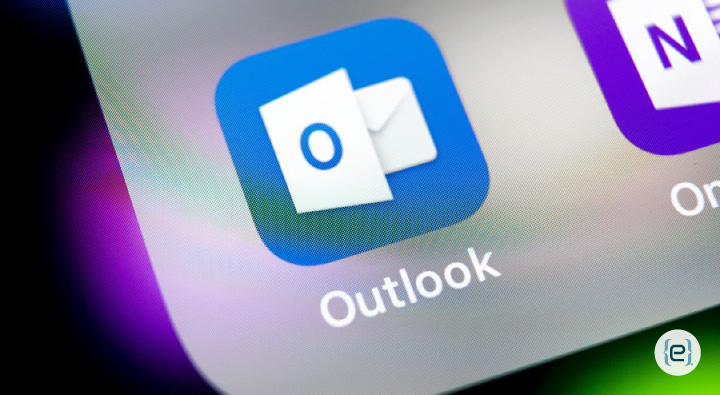5 Big Benefits Microsoft Teams Offers that Slack Does Not


In the world of digital collaboration, Microsoft Teams and Slack vie for top spot. Both offer a feature-rich platforms for teams to chat, conduct meetings, share files, and enhance productivity. However, any comparison of the tools must consider several key benefits Microsoft Teams offers that Slack does not.
Real-time Co-authoring
While both platforms bridge geographical divides and make it easy for colleagues to connect, only Microsoft Teams offers the ability for several users to collaborate in real time on the same document.
For instance, multiple users in different offices can work on a Word document, Excel spreadsheet, or PowerPoint presentation simultaneously. Changes made to the file will appear live to all authors, along with an indication of who made the update. Authors can ask questions and make comments right in the document.
Slack, on the other hand, does not provide any built-in co-authoring capabilities. Users can upload and share files, but multiple authors cannot make edits simultaneously on the same file. To make updates, a user must download the file, make the necessary changes, and then re-share the file with the team.
Streamlined Communication with Outlook Integration
Deep integration with the Microsoft 365 suite of apps offers additional benefits in terms of seamless communication. For instance, if a user receives an email that requires further discussion, they can quickly convert the email into a Teams conversation, inviting other team members as needed.


Likewise, because Teams integrates with Outlook calendars, users can schedule and join meetings from either Teams or Outlook. This reduces the need to switch back and forth between applications, allowing for more focused work.
More Value for the Money
Both Microsoft Teams and Slack offer various pricing levels according to business size and collaboration needs. However, Teams holds a competitive edge in terms of price. In the first place, while both platforms include a free tier, the free Teams version includes more unlocked features than the free Slack version.
For example, the free version of Teams offers unlimited one-on-one calls and group calls for up to 60 minutes with up to 100 participants. It also includes screen sharing. The free version of Slack, however, only allows one-on-one calls and does not include screen sharing.
Teams also delivers distinct advantages in storage. While the Business Pro version of Slack offers just 10 GB of storage per user, the comparable tier of Microsoft 365/Teams includes 1 TB of storage per user.
Additionally, keep in mind that organizations that already pay for Microsoft 365 Business or Enterprise subscriptions gain access to Teams at no additional cost. For large teams, in particular, Microsoft Teams delivers more features for a lower price.
Superior Meeting Capabilities
As indicated above, the free version of Teams offers more powerful meeting capabilities than Slack. And the conferencing features get even better with the paid tiers. While Slack limits video calls to 15 participants even in the paid plans, Teams supports group calls or video conferences with up to 300 participants.
Further, Teams offers advanced meeting capabilities such as background blur, meeting recording, and live captions. And with Teams Live Events or Teams Town Halls, the organization can host a live event for as many as 10,000 attendees (20,000 with Town Halls).
Stronger Security and Compliance
Microsoft Teams and Slack both offer robust security features such as two-factor authentication. However, Teams also offers advanced, enterprise-level security and compliance capabilities beyond those available with Slack.
For instance, Teams delivers capabilities for data loss prevention and data governance, including automated retention policies for channels, chats, and files. When properly configured, it adheres to more than 42 national, regional, and industry standards, from HIPAA to GDPR and beyond.
Discover More Benefits Microsoft Teams Offers that Slack Does Not
Microsoft 365 is designed to turbo charge business productivity while protecting vital data assets. These advantages represent the tip of the iceberg in features available to take your business to the next level. The Microsoft partners at eMazzanti will help your organization uncover the possibilities and optimize your use of Microsoft 365.
Recent Posts
IT Consulting Services: Strategic IT Leadership for Business Growth
Discover how IT Consulting Services from eMazzanti Technologies provide the strategic leadership needed for smart…
Engage Your Workflows with Microsoft Viva
Discover how Microsoft Viva can transform your workplace into a hub of engagement, productivity, and…
Collaboration Made Simple with Microsoft SharePoint
Discover how Microsoft SharePoint optimizes document workflow, enhancing team collaboration and productivity.
Defender Secures Endpoints
Discover how Microsoft Defender for Endpoint provides comprehensive security for businesses, offering real-time threat detection…
The Power of Feedback for Business Growth
Discover how customer feedback drives business growth, enhances customer loyalty, and keeps your company competitive.
Compliance Made Easy with Microsoft 365 and eMazzanti Technologies
Discover how Microsoft 365's robust security features, combined with eMazzanti Technologies' expertise, simplify compliance for…


